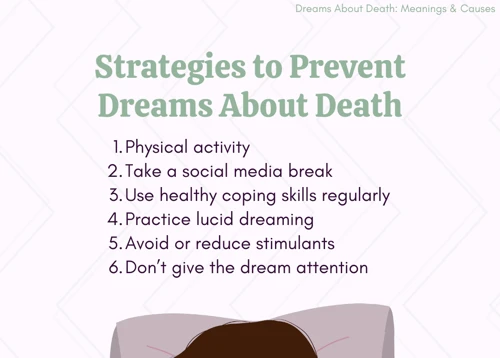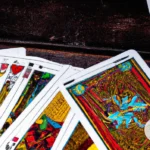Dreams have always fascinated and perplexed us, carrying hidden messages from our subconscious minds. One common and unsettling dream that many people experience is the dream of their own death. This haunting vision can leave us feeling unsettled and questioning its meaning and symbolism. What is the significance of dreaming about our own demise? In this article, we will delve deep into the common interpretations, symbolic elements, and different scenarios surrounding dreams of our own death. We will also explore the psychological and emotional factors that contribute to these dreams, and provide ways to deal with them. Join us on this journey as we seek to unravel the mystery behind these eerie dreams and gain a better understanding of their profound meaning.
Common Interpretations of Dreams of Own Death

Some theories suggest that dreaming of our own death may stem from a fear of change and transformation, symbolizing the end of one phase of life and the beginning of another. This can be particularly relevant during major life transitions or when facing important decisions. Others believe that these dreams signify symbolic endings and new beginnings, representing a process of personal growth and transformation. It is also possible that dreaming of our own death reflects a need to let go of the past, whether it be past experiences, relationships, or emotions. This dream may serve as a reminder to release what no longer serves us and embrace the future. Additionally, the fear of losing control and the uncertainty that comes with it can manifest in dreams of our own demise. Such dreams can provide an opportunity to explore and address our fears surrounding control and surrender. Dreams of own death can prompt reflection on mortality and existential questions, inviting us to ponder the meaning of life, our purpose, and the finite nature of our existence. Each person’s interpretation may vary, influenced by personal beliefs, experiences, and emotions.
1. Fear of Change and Transformation
Dreaming of one’s own death can often be linked to a fear of change and transformation. This fear may arise when individuals are undergoing significant life transitions or are uncertain about the path they are currently on. Water dreams is believed to be a common symbol associated with change and transformation, and it can manifest in dreams of own death. The subconscious mind may be expressing the fear of what lies ahead, the unknown, and the process of adapting to new circumstances. This dream may serve as a reminder to embrace change and see it as an opportunity for personal growth and development rather than something to fear. It can be helpful to explore these feelings further and consider the possibilities that change and transformation can bring.
2. Symbolic Endings and New Beginnings
In some interpretations, dreaming of our own death is seen as symbolic of endings and new beginnings. Just as death is the end of one life, it can represent the end of a particular phase or chapter in our own lives. This dream may signify the closure of certain aspects, such as a relationship, job, or even a belief system, allowing space for fresh beginnings and personal growth. It can be a transformative experience, urging us to let go of what no longer serves us and embrace the unknown. This symbolism of death can be seen as a metaphorical rebirth, opening doors to new opportunities and possibilities. It is important to recognize that these interpretations may vary from person to person, and it is crucial to explore one’s own emotions and experiences to fully understand the meaning behind this symbolic journey.
3. Letting Go of the Past
Dreams of our own death often carry a symbolic meaning of letting go of the past. The imagery of death can represent an opportunity to release past experiences, emotions, and relationships that no longer serve us. Just as physical death marks the end of one’s existence, dreaming of our own death can symbolize a metaphorical death of the old self. It prompts us to reflect on what we may be holding onto that is preventing us from moving forward and embracing new beginnings. This dream invites us to confront any attachments or lingering feelings that are hindering our personal growth and transformation. By recognizing the need to let go and embracing the present moment, we can pave the way for a brighter future. This theme of letting go can also be explored in dreams of dead parents, where the symbolism of loss and the need to come to terms with the past is prevalent.
4. Fear of Losing Control
The fear of losing control is a common interpretation when it comes to dreams of our own death. These dreams may stem from a deep-rooted anxiety about being powerless or unable to exert influence over our own lives. They can symbolize the fear of change and the uncertainty that comes with it. The scenario of dying in a dream may represent a fear of losing control in various aspects of life, such as relationships, career, or personal circumstances. It is important to examine the specific details and emotions surrounding the dream to gain a deeper understanding of this fear. Exploring ways to regain a sense of control and addressing underlying issues or anxieties can help alleviate this fear.
5. Reflection on Mortality and Existential Questions
Dreams of own death can serve as a catalyst for deep reflection on mortality and existential questions. They confront us with the fragility and temporality of life, causing us to contemplate the meaning and purpose of our existence. These dreams may raise profound questions about our legacy, the impact we are making, and the legacy we wish to leave behind. They can also encourage us to reevaluate our priorities, encouraging us to live more authentically and intentionally. While these dreams can be unsettling, they offer an opportunity for introspection and self-discovery, prompting us to explore our beliefs, values, and the significance of our own mortality. Reflecting on mortality can be a transformative experience, leading us to find greater appreciation for the present moment and fostering a sense of urgency to live life to its fullest potential.
Symbolic Elements in Dreams of Own Death
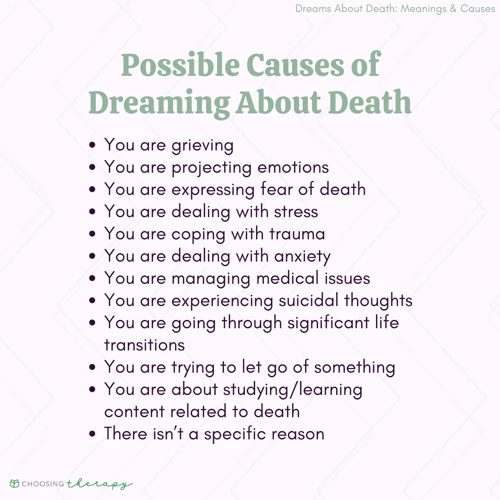
When examining the symbolic elements in dreams of our own death, it is important to pay attention to the setting, details of the death, and our feelings and reactions within the dream. The setting of the dream can provide clues about the context and underlying emotions associated with our mortality. For example, dreaming of being in a hospital may symbolize illness or the need for healing, while dreaming of a graveyard could represent a sense of loss or the need to let go of the past. The details surrounding the death itself, such as the method or cause, may also hold meaning. It could reflect our fears or concerns related to specific aspects of our lives. Additionally, our feelings and reactions during the dream can provide insight into our emotional state and how we perceive the concept of death. Exploring these symbolic elements can help unravel the hidden messages and emotions embedded within our dreams.
1. The Setting: Understanding the Context
Understanding the setting of a dream of our own death can provide valuable insights into its meaning and symbolism. The location and environment in which the dream takes place can offer clues about the context and emotions associated with the dream. For example, dreaming of our own death in a familiar place, such as our childhood home, may indicate a reflection on past experiences or unresolved issues. On the other hand, dreaming of our own death in a foreign or unfamiliar setting might suggest a sense of uncertainty or disorientation in our waking life. The presence of certain objects or elements in the setting, such as water or a particular color, can also hold significance. Water, for instance, may symbolize emotions, while the color red may represent passion or intensity. Exploring the setting of our dream can assist in unraveling the deeper meaning behind our own death-related dreams and provide greater clarity on the message they hold.
2. Details of the Death: Examining the Method
When examining the details of the death in dreams, it is important to consider the method by which it occurs. The method of death in a dream can vary widely and carry its own symbolic significance. For example, dreaming of dying in a car accident may indicate feelings of lack of control or a fear of losing independence. On the other hand, dreaming of an illness leading to death may symbolize unresolved health concerns or a need to focus on self-care. If the dream involves being killed by someone else, it may suggest feelings of vulnerability or a perceived threat in a particular relationship or situation. Dreams of drowning or suffocating might represent feelings of being overwhelmed or suffocated in waking life. It is essential to analyze the specific details of the method of death in order to gain deeper insights into the underlying messages within the dream.
3. Feelings and Reactions: Powerful Emotions
Dreams of one’s own death often evoke powerful emotions and reactions. Upon waking from such dreams, individuals may experience a range of intense feelings, including fear, anxiety, sadness, or relief. These emotions can be a reflection of our subconscious worries and concerns about our mortality or can represent the deep-rooted fears we have surrounding loss and change. The dreamer’s reaction to the dream can provide valuable insights into their current emotional state and underlying issues they may need to address. It is important to acknowledge and process these emotions in order to gain a deeper understanding of the dream’s meaning and its potential impact on one’s waking life.
Interpreting Different Scenarios
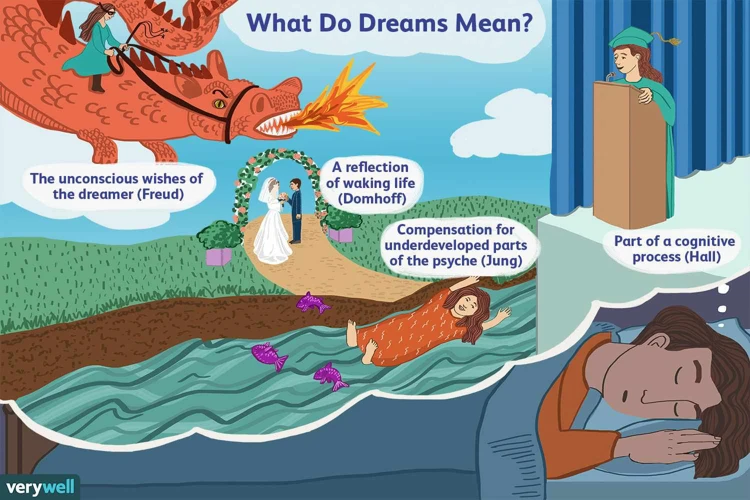
When it comes to interpreting dreams of our own death, the scenarios and details within the dreams can provide additional insights. For example, dreaming of dying in a car accident could symbolize a lack of control in one’s personal or professional life. It may be a warning to be cautious and make changes to regain control and prevent potential disasters. Dreaming of an illness leading to death can reflect anxieties about health or unresolved emotional issues that are taking a toll on well-being. This dream may serve as a reminder to prioritize self-care and address underlying concerns. Being killed in a dream can represent feelings of vulnerability, powerlessness, or being controlled by others. Exploring the context and emotions surrounding this dream can provide a deeper understanding of interpersonal dynamics and the need for autonomy. Dreams of drowning or suffocating can be interpreted as a symbol of being overwhelmed by emotions or situations in waking life. They can signal the need for emotional release or finding ways to navigate challenging circumstances. Remember, the meaning of these scenarios can vary for each individual, so it’s important to analyze the dream within the context of one’s own experiences and emotions.
1. Dreaming of Dying in a Car Accident
Dreaming of dying in a car accident can evoke intense emotions and leave us feeling vulnerable. This scenario often symbolizes a loss of control and a fear of unexpected events. It may reflect anxiety about our path in life and the risks we encounter along the way. This dream could also indicate a need to pay attention to our decisions and actions, as reckless behavior or a lack of caution may result in negative consequences. It is important to note that dreams are highly subjective, and personal experiences and emotions play a significant role in their interpretation. Dream number analysis can provide additional insight into the symbolic meaning of this scenario, helping individuals gain a deeper understanding of themselves and their fears.
2. Dreaming of an Illness Leading to Death
Dreaming of an illness leading to death can evoke strong emotions and fears. It may represent a subconscious concern about our physical health or the well-being of our loved ones. This dream could reflect anxieties surrounding our own mortality or the health of those close to us. Sometimes, these dreams may symbolize the need for healing or the desire to address underlying health issues. It is essential to approach these dreams with empathy and understanding, recognizing the potential psychological significance they hold. Exploring the symbolism and considering personal circumstances and emotions can provide insights into the deeper meaning behind this type of dream.
3. Dreaming of Being Killed
Dreaming of being killed can be a distressing and intense experience. In this scenario, the dream typically involves someone or something causing harm or ending our life. It is important to note that dreams of being killed do not indicate an actual threat to our physical well-being. Instead, they often symbolize feelings of vulnerability, powerlessness, or a lack of control in waking life. These dreams may arise during periods of stress, conflict, or when we are facing difficult situations. They can also reflect deep-seated fears and anxieties related to our self-esteem, relationships, or personal safety. Exploring the emotions and circumstances surrounding this dream can provide valuable insights into our subconscious fears and help us navigate and address them in our waking life.
4. Dreaming of Drowning or Suffocating
Dreaming of drowning or suffocating is a particularly distressing scenario that can occur in dreams of own death. These dreams often symbolize feelings of being overwhelmed or suffocated by certain aspects of life. It may indicate a struggle with emotional difficulties or a sense of being trapped in a suffocating environment. This dream could
Subscribe to Our Newsletter
Sign up to receive the latest news and updates.
Psychological and Emotional Factors
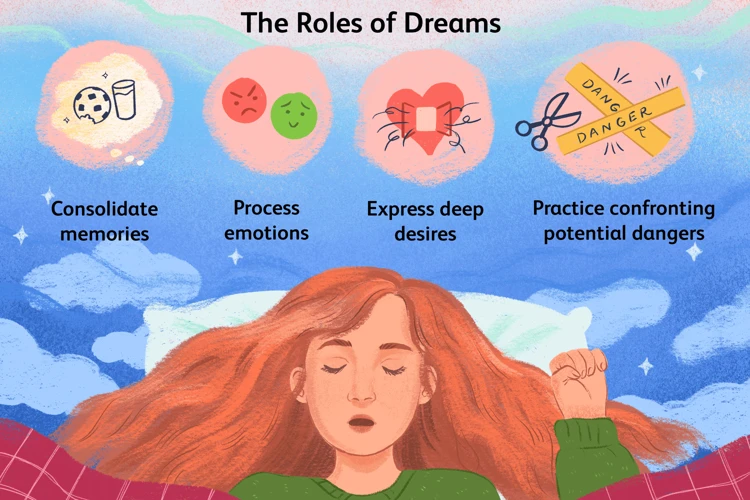
The psychological and emotional factors behind dreams of our own death are complex. According to Sigmund Freud, dreams are a manifestation of our unconscious desires, fears, and conflicts. From this perspective, dreaming about our demise may indicate deep-seated fears or unresolved issues surrounding mortality. On the other hand, Carl Jung viewed dreams as a pathway to the collective unconscious, where universal symbols and archetypes reside. From Jung’s perspective, dreams of our own death may symbolize a psychological transformation or an integration of the shadow self. Stress and anxiety can also play a significant role in these dreams, as they can intensify our fears and anxieties, causing them to manifest during sleep. Understanding the psychological and emotional factors at play can provide valuable insight into the meaning behind dreams of our own death and help navigate the emotions they evoke.
1. Sigmund Freud’s Perspective
Sigmund Freud, the renowned psychoanalyst, had a unique perspective on dreams, including those of our own death. According to Freud, dreams are the “royal road to the unconscious,” representing unfulfilled wishes and repressed desires. In the case of dreaming about one’s own death, Freud believed it could be a manifestation of the Oedipus complex or unresolved feelings towards a parent. For example, dreaming of the death of a parent might symbolize conflicting emotions or a desire for independence. Freud emphasized the importance of analyzing the symbolism and latent content of dreams to uncover their true meaning. Although his theories have faced criticism over the years, his contributions to dream interpretation have had a lasting impact on the field of psychology.
2. Carl Jung’s Interpretation
Carl Jung, a renowned psychologist, offered his interpretation of dreams of our own death. According to Jung, these dreams can be seen as representations of the ego’s fear of transformation and the need for personal growth. He believed that death in dreams often symbolizes a metaphorical death of the old self, making way for the emergence of a new and more authentic self. This process of self-transformation, known as individuation, is an essential aspect of Jungian psychology. Jung also emphasized the importance of analyzing the symbolism and archetypal patterns present in these dreams. By exploring the unconscious symbols and their personal significance, we can gain valuable insights into our fears, desires, and aspirations. It is through these explorations that we can uncover hidden aspects of ourselves and embark on a journey towards self-realization and wholeness.
3. The Role of Stress and Anxiety
Stress and anxiety can play a significant role in dreams of our own death. When we are under immense pressure or experiencing high levels of stress, our subconscious mind may use these dreams as a way to process and cope with these emotions. Stress can manifest in various forms, including fear, uncertainty, and a sense of being overwhelmed. These feelings can surface in dreams as images of our own demise, reflecting our inner turmoil. It is important to note that dreams of our own death are not necessarily a prediction of impending doom, but rather a reflection of our psychological state and emotional well-being. Exploring the root causes of stress and anxiety in our waking lives can help alleviate the frequency and intensity of these unsettling dreams. Seeking support from loved ones or professional help if needed can also provide valuable guidance in managing and reducing stress levels.
Ways to Deal with Dreams of Own Death
When faced with unsettling dreams of our own death, it is important to acknowledge and reflect on the dream’s significance. Take time to contemplate the emotions and fears that arise from the dream. Keeping a dream journal can be helpful in recognizing patterns and gaining insights into the subconscious. Exploring your emotions and fears surrounding death can provide valuable self-reflection and help bring about a deeper understanding of yourself. Seeking professional help, such as therapy or counseling, can be beneficial if the dreams persist or cause significant distress. Grief and loss are complex emotions that may be interwoven with dreams of our own death, especially if we have experienced the loss of a loved one. Remember to be gentle with yourself and allow space for healing. If you have lost a parent, you may find comfort in exploring dreams of dead parents, as they can offer a unique perspective on the grieving process. Ultimately, finding healthy ways to cope with and address these dreams can lead to personal growth and a better understanding of our own fears and desires.
1. Acknowledge and Reflect on the Dream
The first step in dealing with dreams of our own death is to acknowledge and reflect on the dream itself. Take the time to sit with the emotions that the dream evokes and explore any underlying fears or concerns it brings up. Consider the details of the dream, such as the setting, method of death, and your reactions within the dream. Reflecting on these elements can provide insights into the possible symbolism and meaning behind the dream. It can be helpful to keep a dream journal and write down your thoughts and feelings upon waking from such dreams. This can assist in identifying recurring themes or patterns that may be present. Seeking the guidance of a therapist or dream analyst can also be beneficial, as they can provide further interpretation and support in understanding the significance of the dream. Remember, dreams have the potential to offer valuable insight into our subconscious minds and can serve as a catalyst for personal growth and self-awareness.
2. Explore Your Emotions and Fears
When faced with dreams of our own death, it is essential to explore the emotions and fears that arise from these experiences. These dreams often evoke intense emotions, such as fear, anxiety, sadness, or even relief. Take the time to reflect on the feelings that the dream elicits and consider their underlying causes. Are there any unresolved emotions or fears that may be manifesting in this symbolic way? Examining these emotions can provide valuable insights into our subconscious mind and help us uncover deeper layers of our psyche. It may also be helpful to journal or talk to a trusted friend or therapist about these emotions and fears, allowing for a deeper understanding and processing of the dream’s significance. Exploring these internal experiences can lead to personal growth and development, helping us navigate through any unresolved issues or concerns that may be surfacing in our dreams.
3. Seek Professional Help if Needed
If dreams of our own death continue to cause distress or if they are accompanied by intense emotional reactions that impact our daily life, seeking professional help may be beneficial. A mental health professional, such as a therapist or counselor, can provide guidance and support in exploring the deeper meanings and underlying emotions behind these dreams. They can assist in identifying any unresolved issues or traumas that may be contributing to the dreams. Additionally, seeking professional help can offer coping strategies and tools to manage anxiety or fear associated with the dreams. Remember, reaching out for support is a courageous step towards understanding and healing.
Conclusion
In conclusion, dreams of our own death can be unsettling, yet they offer valuable insights into our subconscious minds. Interpreting these dreams requires a deep understanding of the symbolic elements and personal context. Fear of change, symbolic endings and new beginnings, letting go of the past, fear of losing control, and contemplation of mortality are common interpretations of dreams of our own death. Psychological perspectives from experts like Sigmund Freud and Carl Jung shed light on the underlying meanings and emotions associated with these dreams. It is important to acknowledge and reflect on these dreams, exploring our emotions and fears. Seeking professional help can also provide guidance and support in understanding and working through these dreams. Remember, dreams of our own death can be a reflection of personal growth, transformation, and the complexities of our existence.
Frequently Asked Questions
1. What does it mean if I dream of my own death multiple times?
Dreaming of your own death multiple times may suggest a recurring theme or unresolved issue in your life that needs attention. It could indicate a deep-rooted fear, anxiety, or significant change that you are grappling with.
2. Are dreams of my own death a bad omen?
No, dreams of your own death are not necessarily a bad omen. They often represent a symbolic or metaphorical death, signifying transformation, growth, or the need to let go of something in your life. It is essential to explore the underlying emotions and context of the dream to gain a better understanding.
3. Can dreams of my own death predict actual death?
No, dreams of your own death do not predict actual death. Dreams are symbolic representations of our subconscious thoughts and feelings and should not be taken as literal predictions of the future.
4. Why do I feel so disturbed and anxious after dreaming of my own death?
Dreams of our own death can evoke powerful emotions due to their intense and unsettling nature. They may tap into deep-seated fears, anxieties, or unresolved issues. Take the time to reflect on the dream, explore your emotions, and seek support if needed.
5. Can dreams of my own death have positive meanings?
Yes, dreams of your own death can have positive meanings. They often represent a symbolic ending and a new beginning or signify personal growth and transformation. These dreams can serve as an invitation to embrace change and let go of what no longer serves you.
6. Are there any cultural or religious interpretations of dreams of own death?
Yes, cultural and religious interpretations of dreams of own death can vary. Different cultures and belief systems may have different interpretations, often influenced by their views on life, death, and the afterlife.
7. Are there any common dream symbols associated with dreams of own death?
Common dream symbols associated with dreams of own death can include settings, methods of death, and emotions experienced. These symbols can provide further insight into the underlying meaning of the dream.
8. How can I interpret the symbolic elements in my dreams of own death?
To interpret the symbolic elements in your dreams of own death, pay attention to the setting and context of the dream, the details of the death itself, and the emotions you experienced. Reflect on these elements and make connections to your waking life and personal experiences.
9. Can dreams of own death be a reflection of my mortality and fear of dying?
Yes, dreams of own death can reflect your thoughts and feelings about mortality and your fear of dying. They provide a space to explore existential questions and contemplate the transient nature of life.
10. Should I be concerned if I never dream of my own death?
No, there is no cause for concern if you never dream of your own death. Dreams are highly personal, and everyone’s dream experiences differ. It is more important to pay attention to the overall patterns and themes in your dreams rather than fixating on one specific aspect.

